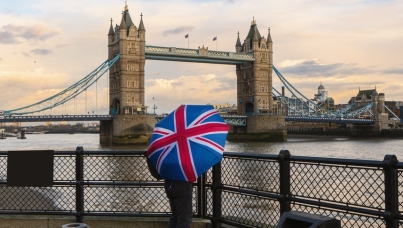The Departure Lounge – public attitudes to death and dying
Water cremation, eco-friendly burials, and digital legacies – how are our expectations of death changing?
Death comes for us all, so why are we so reluctant to talk about it?
In late 2019, The Departure Lounge was launched – an installation designed by The Academy of Medical Sciences and The Liminal Space to encourage the public to talk about death and dying. While death may be something most of us would prefer not to think about, we know that these conversations are important. Consideration, understanding, and planning give people a better chance of having a good death. Through creating this immersive, taboo-busting installation, The Academy of Medical Sciences wanted to facilitate this conversation – and build their understanding of how a good death might look in 2020. This was supported by a forward-looking trends piece, to explore future signals of change.
Key findings:
- When was the last time you had an honest conversation about death? Many of us find it difficult. We found that one-third of the public opted not to answer questions around the end of life at all.
- We found that some elements of death were harder to talk about than others. People were more comfortable discussing funerals and the period leading up to death than the hour (or day) of death itself. Indeed, people knew more about funerals, diagnosis, and disease – and were relatively comfortable discussing the practical aspects, the process of minimising pain, and supporting their loved ones. Knowledge around the moment of death itself, as the body shuts down, was sparser – and people were less comfortable when discussing their projected emotional state at this time.
- In the future, we expect death to become more personalised. People are more likely to develop their understanding of dying from their friends and family than from medical professionals. We see new industries developing to meet this need for human connection – like Death Doulas, who aim to offer a similar experience to those leaving this world as traditional doulas offer during childbirth.
- Death, taxes and… climate change? Environmental concern, a new stalwart of the nation’s shared consciousness, is changing the way we die in addition to the way we live. Those who live consciously want to express those same values in death – and new innovations like water cremation, eco-friendly coffins, or burials that take place within artificial coral reefs are emerging to meet this need.
- Palliative care is not well understood by the British public. Many had not heard the term, and there were misconceptions around availability, cost and what it entailed.
- Dignity and respect are at the core of what the British public consider to be a good death. We seek agency and control, flexibility, and the opportunity to express our personal values and beliefs. In death, much as in life, what matters is love and a shared humanity.
To learn more about the project in general, please visit the Academy of Medical Sciences and The Liminal Space.
Departure Lounge 2019 from The Liminal Space on Vimeo.
Technical note
Polling:
- Ipsos interviewed a representative quota sample of 966 British adults aged 18+ between 5 and 14 April 2019. Interviews were carried out face-to-face using Ipsos’s “capibus” omnibus survey. Data is weighted to match the profile of the population. Full data tables are available from the Ipsos website.
- In line with the principles of informed consent, participants were given the opportunity not to answer questions on this sensitive topic. A screener question was asked ahead of the module giving some background and asking if participants were happy to answer questions on this topic. Those who were not (35% of the whole sample) were not asked any.
- In total, 612 participants answered the questions in this section. Those who chose not to tended to be older, in social grades C2 and DE, and with fewer formal educational qualifications.
Qualitative research:
- 7 mixed-gender workshops took place in the Departure Lounge installation; two with Muslims aged 25-70 (one male, one female), one with elderly people with and without health conditions, one with young pre-family, and two with “squeezed generation”, those caring for both children and elders, split out ABC and CDE.
- Training of guides given to complete 64 self-completion discussion tasks which were analysed along with qualitative data.
Trends research:
- Sources included Google Trends, our social media intelligence suite, Synthesio, brief literature review of various books recently released on this topic, online sources published by newspapers, academics, charities and organisations.






